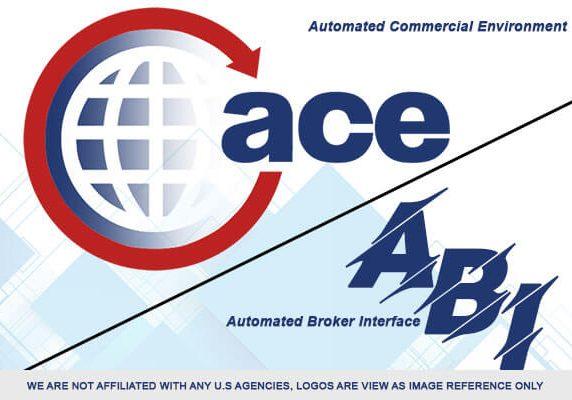In today’s fast-paced world of global trade and commerce, efficiency and accuracy are key components of success. Enter the Automated Broker Interface (ABI), a powerful tool that is revolutionizing the way goods are imported and exported. From logistics to transport to shipping, ABI is streamlining processes and reducing errors, making the world of international trade smoother and more reliable than ever before. Join us as we explore the ins and outs of ABI and uncover how it is shaping the future of the logistics industry.
Heading 1: Streamlining International Trade with Automated Broker Interface (ABI)
Streamlining international trade has never been easier with the use of Automated Broker Interface (ABI). This advanced system allows for seamless communication between customs brokers, importers, and other trade partners, streamlining the importation and exportation processes. With ABI, paperwork is reduced, processing times are faster, and compliance with regulations is more easily achieved.
By utilizing Automated Broker Interface, businesses can save time and money on international trade transactions. ABI enables real-time data exchange, electronic submission of entry summaries, and automated responses from U.S. Customs and Border Protection. This not only expedites the clearance process but also ensures accuracy and compliance with trade regulations. With the help of ABI, businesses can improve efficiency, reduce errors, and focus on growing their international trade operations.

Heading 2: Enhancing Efficiency in Logistics Operations through ABI Integration
Automated Broker Interface (ABI) Integration
Integrating ABI into logistics operations can revolutionize the way companies handle their shipping and transport processes. By automating customs clearance and data submission, ABI streamlines the flow of information between brokers, carriers, and customs officials, reducing the risk of errors and delays. This integration allows for real-time tracking of shipments, ensures compliance with regulations, and improves overall efficiency in logistics operations.
With ABI integration, companies can benefit from increased visibility into their supply chain, improved communication with stakeholders, and reduced paperwork. By leveraging technology to automate routine tasks and streamline processes, businesses can focus on strategic decision-making and enhancing customer satisfaction. As the logistics industry continues to evolve, ABI integration will play a crucial role in driving efficiency and competitiveness in the global marketplace.

Heading 3: Maximizing Shipping Accuracy and Compliance with ABI Technology
When it comes to maximizing shipping accuracy and compliance, ABI Technology offers a reliable solution for businesses in the logistics, transport, and shipping industries. By utilizing Automated Broker Interface technology, companies can streamline their processes and reduce the risk of errors or delays in shipping operations. This advanced system allows for real-time communication between brokers, shippers, and customs officials, ensuring that all necessary documentation and compliance requirements are met efficiently.
With ABI Technology, organizations can benefit from improved data accuracy, faster processing times, and increased transparency throughout the shipping process. By automating key tasks such as customs clearance, documentation submission, and tracking, companies can enhance their overall shipping efficiency and reduce the likelihood of costly mistakes. Embracing ABI Technology is a strategic move for businesses looking to stay ahead in today’s fast-paced shipping environment and maintain a competitive edge in the global marketplace.

Heading 4: Key Recommendations for Implementing ABI in Transport and Shipping Processes
When implementing Automated Broker Interface (ABI) in transport and shipping processes, it is essential to ensure seamless integration and efficient communication between various stakeholders. Key recommendations to effectively implement ABI include:
- Collaboration: Foster collaboration between customs brokers, freight forwarders, shippers, and carriers to streamline data exchange and facilitate customs clearance processes.
- Training: Provide comprehensive training programs for employees involved in ABI implementation to enhance their skills and understanding of the system.
- Technology: Invest in advanced technology solutions to automate data entry, track shipments in real-time, and enhance visibility throughout the supply chain.
| Recommendation | Description |
|---|---|
| Integration | Integrate ABI with existing transport management systems for seamless data transfer. |
| Compliance | Ensure ABI implementation complies with customs regulations and industry standards. |
| Monitoring | Regularly monitor ABI performance to identify areas for improvement and ensure compliance. |
Insights and Conclusions
In conclusion, Automated Broker Interface (ABI) technology is revolutionizing the logistics, transport, and shipping industry by streamlining processes and increasing efficiency. With the ability to automate customs processes, track shipments in real-time, and enhance communication between all supply chain stakeholders, ABI is truly changing the way goods are transported around the world. As this technology continues to evolve and improve, we can expect even greater advancements in the future of logistics. Stay tuned for more updates on how ABI is reshaping the industry!
